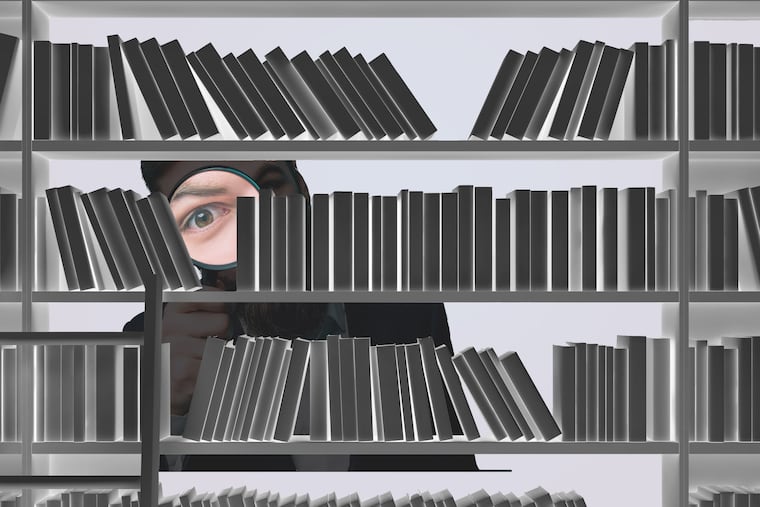Mystery shoppers get the scoop on what it’s like to be a patron at the Free Library
The whole purpose, Reardon said, was to “establish a baseline of what it’s like to be a customer here.”

When Free Library president Siobhan Reardon realized in early 2018 that she had no way to know what it was like to be a patron at a Philadelphia library, she decided to find out.
On a mission to deliver an “exceptional customer experience," the Free Library Foundation paid $29,000 for a New York-based company to send undercover visitors to 53 of the system’s 54 branches.
Last year, 27 of the so-called “mystery shoppers” visited Philadelphia neighborhood libraries three times between April and October, according to library administrators. It was a first for the system, and came at a time when the system was forced each day to close neighborhood branches due to insufficient staff and facility emergencies.
“The customer experience is the No. 1 goal, to make sure that our customers are treated respectfully, and we have the collections, and we open when we promise,” Reardon said.
Mystery shopping, or secret shopping, occurs when a business arranges to send anonymous shoppers to a site to evaluate aspects such as quality of service, employee performance, standards compliance, and product quality.
These sleuth shoppers have been enlisted by restaurants, hotels, hospitals, museums, zoos, and other institutions for decades, said Betsy Barber, executive director of business development and partnerships at Temple University’s School of Sport, Tourism, and Hospitality Management.
“It allows companies to be ahead of the issue instead of being in a reactive mode," Barber said. “Years ago you’d be at the front desk and they’d hand you a postcard or a survey to fill out on the spot. ... Now, right after you check out of a hotel aren’t you getting an email to say ‘Hey, tell me how your experience was’? … Any time you’ve had service and this survey email follows.”
The technique became relevant at libraries as patrons shifted from being seen as visitors to being seen as customers who pay with their tax dollars and deserve high-quality service. Libraries nationwide have sought out mystery shoppers since at least the early 2000s to evaluate branches and staff.
Orange County Library System in Florida, for example, which has branches in Orlando and nearby cities, began using a mystery shopper program at its 16 locations in 2004. The branches are shopped once a month, according to a system spokesperson.
In early 2018, Free Library administrators sought recommendations from other local institutions that contracted for mystery shoppers.
About five companies were considered but “it was clear Coyle [Hospitality Group] could meet the needs of the library,” said spokesperson Kaitlyn Foti.
In March 2018, the library hired Coyle and by April, shoppers were on the hunt. Neither librarians nor their unions were tipped off to the secret sleuthers.
They found restrooms were sometimes dirty, staff badges weren’t visible, and security staff weren’t visible.
Librarian Adam Feldman said he was “immediately outraged" to learn library management paid for the secret evaluations.
"That whole model is inappropriate for the library, because we’re an education institution, we’re not just a free bookstore,” said Feldman, a steward for Local 2187, which represents librarians. Other staff, who asked not to be named out of fear of retaliation, said they felt insulted and “spied on.”
But the secretiveness was for good reason, Barber said.
If employees know they are being evaluated, Barber said, “they might pretend. They might do things differently than they would’ve done for a normal customer. ”
Reardon said she plans to use the information to shape a customer-service training program for librarians.
She has two binders filled with stapled evaluation packets created by the secret shoppers.
Reardon anticipates the library will send shoppers back to the branches again in a few years.
“Once you begin it, you want to go back in two years or three years and say ‘How are we doing?’ ” she said.